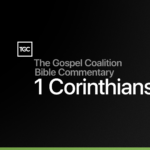On August 11, white supremacists descended on Charlottesville, Virginia, to protest the removal of a statue of Confederate General Robert E. Lee from Emancipation Park—previously known as Robert E. Lee Park. Neo-Nazis, members of the Ku Klux Klan, the Alt-Right, National Socialistic Movement, and other extreme groups marched through the city with torches reminiscent of the Hitler Youth Movement, shouting racial phrases: “Blood and soil,” “You will not replace us,” “Jews will not replace us,” “Deus vult,” and “White lives matter.” They were met with opposition by students from the University of Virginia as they attempted to approach the statue of Thomas Jefferson, the founder of the University of Virginia.
The next day, the white supremacist protesters were met by scores of counter-protesters, including members of Black Lives Matters, local clergy, many ordinary citizens, and those described as “Antifa.” The meeting of supremacist groups and the counter-demonstrators quickly erupted into vehement and violent clashes.
The church must begin treating racism/white supremacy as the formidable, seasoned opponent it is, instead of barely acknowledging race-based hate as if it is a newly emerging, minor threat. This responsibility falls on both leadership and members alike, both shepherds and Christian academics.
This responsibility cannot be a mere afterthought to Charlottesville and like events. Where the church is presently on the defensive front concerning racism, it must shift to the offensive position and take active steps to deter racist ideals or hate justification within its ranks. Failure to do so directly injures the church’s ability to reach marginalized groups who have become victim to rising attitudes of hate and xenophobia.
Is there enough evidence for us to believe the Gospels?
 In an age of faith deconstruction and skepticism about the Bible’s authority, it’s common to hear claims that the Gospels are unreliable propaganda. And if the Gospels are shown to be historically unreliable, the whole foundation of Christianity begins to crumble.
In an age of faith deconstruction and skepticism about the Bible’s authority, it’s common to hear claims that the Gospels are unreliable propaganda. And if the Gospels are shown to be historically unreliable, the whole foundation of Christianity begins to crumble.



































